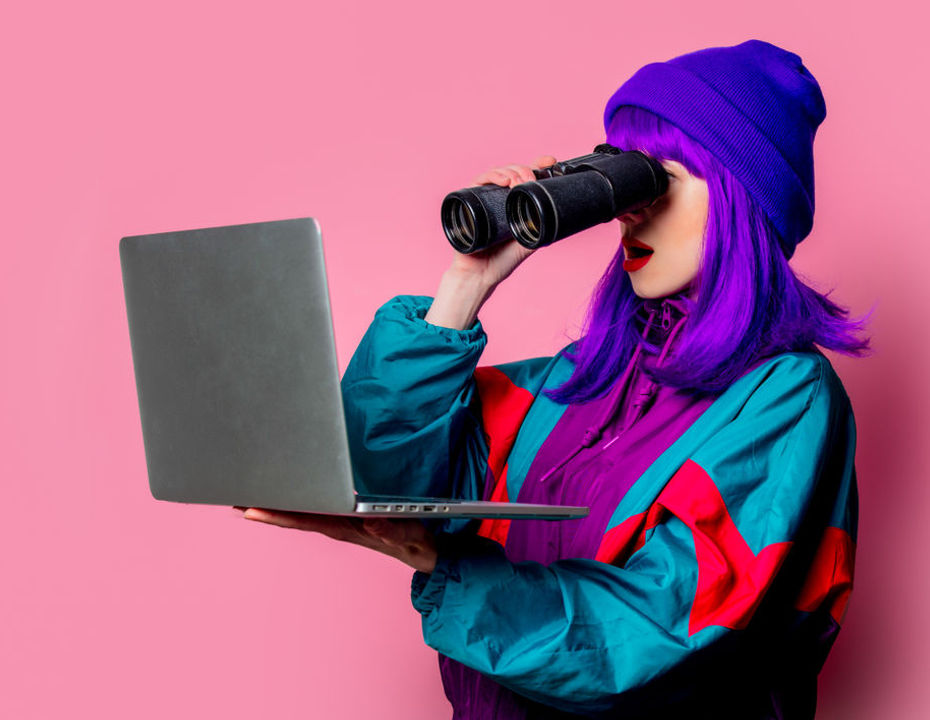
Preview in:
Are image recognition tools safe to use?
Generally, reverse image search using reputable search engines is a safe and secure tool. Major players like Google Images, Lenso.ai, PimEyes, and Yandex prioritize user privacy. When you upload an image for a search on these platforms, it's typically stored temporarily and isn't permanently indexed or publicly viewable.
However, caution is advised when using lesser-known search tools. These platforms might have weaker privacy policies, potentially leading to your image being used in unintended ways. Some risks mirror tactics seen in social engineering in cybersecurity, where malicious actors exploit trust to gain sensitive information. For this reason, it's important to be aware of potential risks and take steps to protect your data. In the next section, we'll explore some common concerns and how to ensure your image searches remain secure.
Learn more about Reverse Image Search
Are website recognition tools storing my data?
The most common concerns regarding image search tools involve uploaded images being saved, stored, or even published elsewhere. Additionally, many users worry their uploads might be used for targeted advertising without their knowledge.
To address these concerns, it's crucial to review and understand the privacy policies of the services you use. Some image recognition tools, like Lenso.ai, prioritize user privacy by not storing uploaded images permanently or using search data for targeted advertising. Their support team is also happy to answer any privacy questions you may have regarding your image uploads.
Third-party access
Beyond the main service itself, consider potential data sharing with third-party apps or tools that might integrate with the image recognition platform. These third parties could potentially access your uploaded data for analysis. In some cases, these integrations may involve open-source components, which introduces another layer of consideration managing open-source risk becomes essential to ensure vulnerabilities in external libraries don’t compromise your privacy.
To understand these practices, carefully review the privacy policies of both the main service and any integrated tools. If you're unsure about third-party integrations, contacting the service's support team directly is the best course of action.
Camera and microphone permissions
For image analysis, many recognition services require camera access. Some might additionally request microphone access for features like voice search. Always be mindful of why an app requests specific permissions, and only grant them if you feel comfortable with the access level.
Data security
Remember, data breaches and unauthorized access are potential risks with any online service, including image recognition tools. To mitigate these risks, prioritize services with a strong reputation for data security. Additionally, be mindful of the sensitivity of the images you upload. Choosing what data you share online empowers you to take control of your privacy. Using a password management tool can also help secure your accounts across platforms and reduce the risk of password-related breaches.
My image has been leaked - what should I do?
If your private images have been leaked, don't panic. Here's what you can do to take control of the situation.
- Secure your accounts: Change your passwords on all affected accounts and enable two-step authentication for added security.
- Collect evidence: Take screenshots of the leaked images and any other relevant information. Use a reputable image search tool to see if the images appear elsewhere online. Remember, these tools have limitations, so a wider search may be necessary.
- Report the leak
- Report to the platform: Most platforms have mechanisms to report non-consensual intimate content.
- Report to law enforcement: In some cases, leaking private photos can be a crime. Consider reporting it to the police, especially if the photos were obtained without your consent.
- Seek support - Talk to a trusted friend or family member or contact a crisis hotline. There are hotlines that specialize in helping with online harassment.
- Here are some resources that can be helpful: The Cybersmile Foundation: https://www.cybersmile.org
Remember, it's not your fault if your photos were leaked. Focus on your safety and well-being, and don't hesitate to reach out for help.
Ensure your safety online
While image recognition tools from reputable sources are generally safe, it's always a good practice to be cautious with your data. This means reading and understanding the privacy policies of any service you use for image searches. Don't hesitate to contact their support team if you have questions.
Be especially mindful when dealing with sensitive photos. Uploading a picture of your pet is likely harmless, but exercise caution with personal or revealing images.
Continue reading

General
Top 6 Reverse Image Search Websites for Face Recognition in 2026
If you find yourself struggling to find the perfect reverse image search engine that supports face recognition, you’re in the right place. Here are our top 6 picks.

General
Visual Intelligence: Using AI Reverse Image Search to Drive Sales and Market Share
The era of exclusively text-based searching has ended. People now upload screenshots, crop product photos, and snap pictures of storefronts. The image has become their search query.

General
List of All Tools for Finding Similar Images in 2026 (Search by Image)
Looking for similar images online? Here’s the list of all the similar image search websites - fast, reliable and accurate image search engines. Check which tools you can use for searching for photos on the internet.

